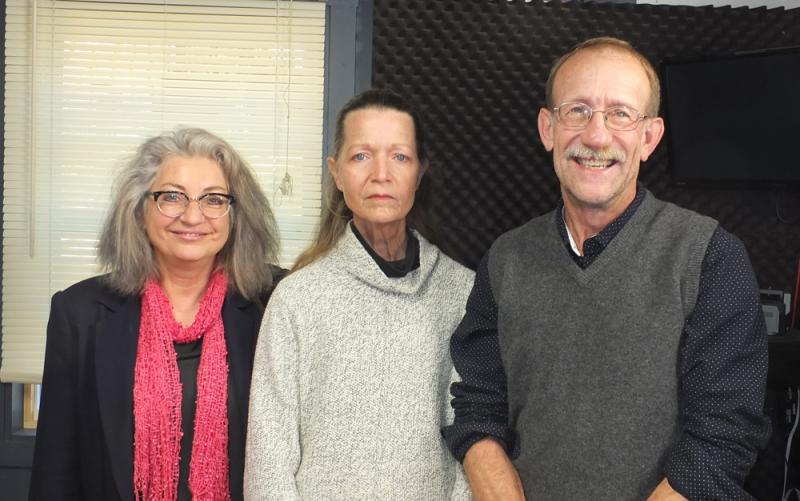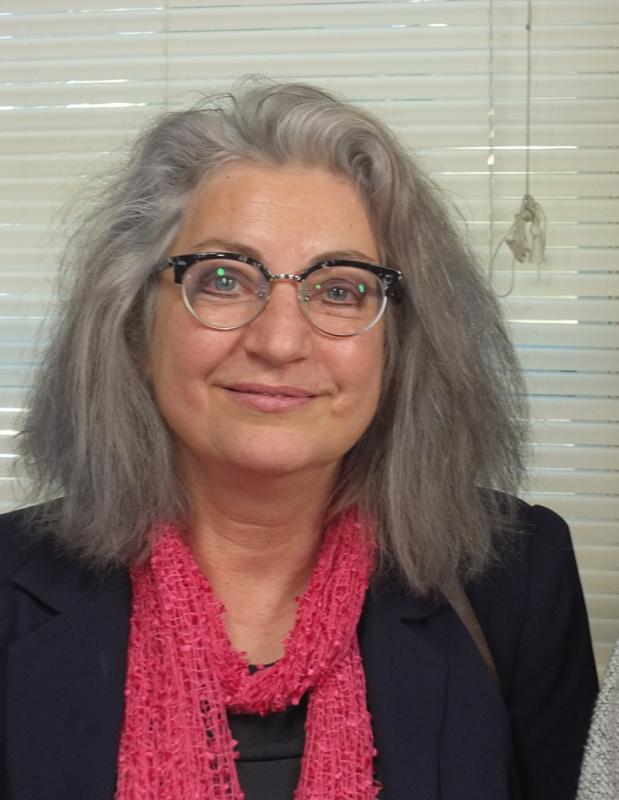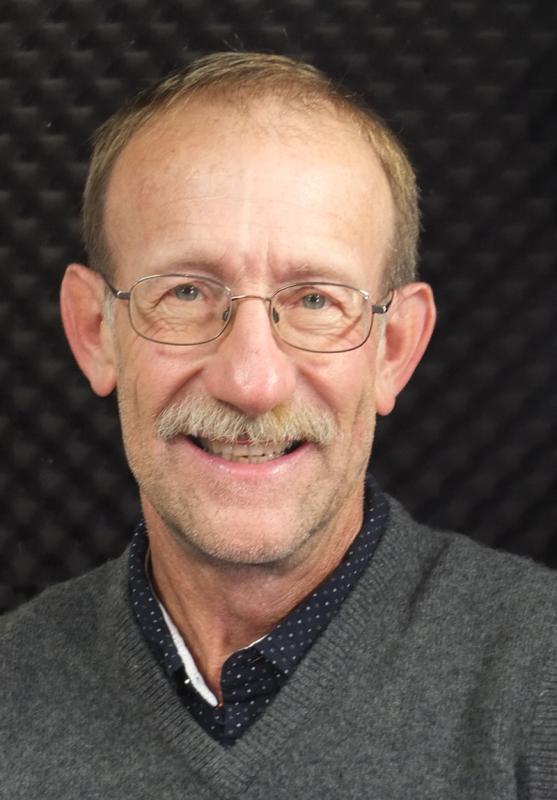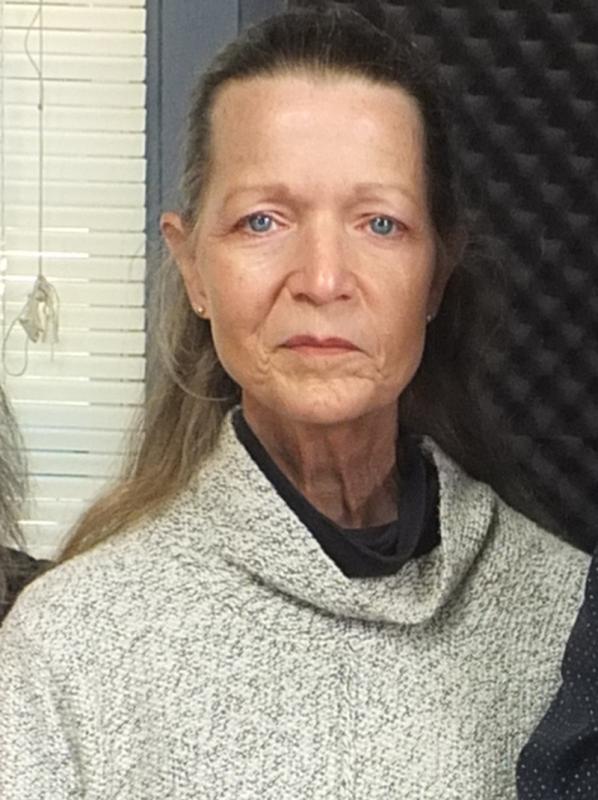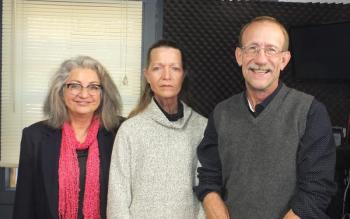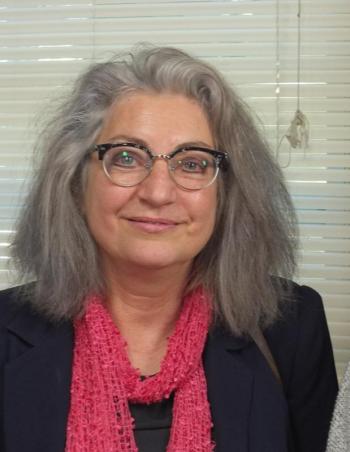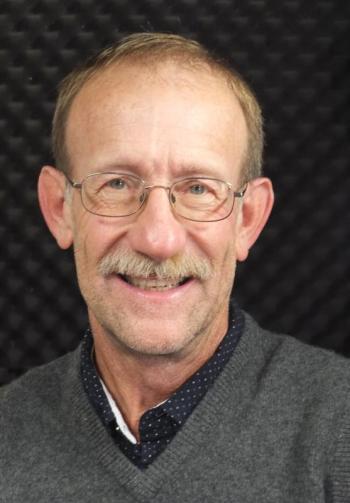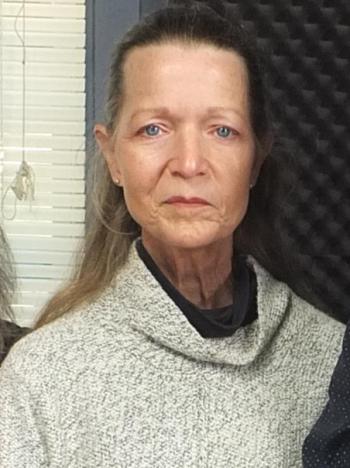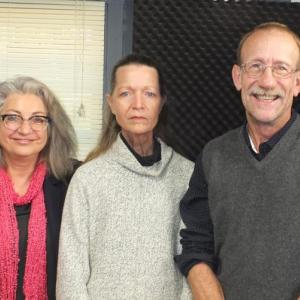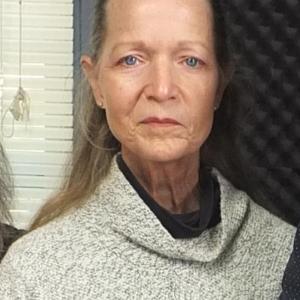Three candidates, two seats and a candid interview in Rockland
ROCKLAND – Coming up November 7, voters will fill two seats on Rockland's City Council. Running for reelection is Valli Geiger. If reelceted it will be Geiger's second term in office. Her opponents Gregory Mason and Lisa Westkaemper, both first time candidates, are running to fill the three year term. Rockland Mayor Will Claytion whose seat is up announced he will not seek another term.
Geiger said she want to make it easier for people to decide what they wanted to do with their homes and pieces of property.
"I'd like to take another crack at trying to figure out housing," she said. "We have a housing crisis in Rockland and I'd also like to keep working to try and figure out how we move forward despite the high property taxes."
Geiger said that if she is reelected she would certainly put her hat in the ring to be elected mayor. She has lived in Rockland for 21 years.
Lisa Westkaemper is new to the Rockland area. She and her husband bought their property in 2013.
From Justin Texas, she served one term on the Justin City Council.
"I enjoyed being on the Justin City Council," she said. "It was something that I took to fairly easily. The idea of going through very dense ordinances, codes and regulations trying to figure out what they mean, what they are useful for, what they do for the people and what they don't do."
Westkaemper said she looked for tools rather than weapons for the city council. She said she looked at proposal brought forth to make sure it was a little bit more then what was presented on the surface.
Westkaemper said it was she who had encouraged Geiger to run for her first term when she moved here from Justin in 2013.
"Since that time, every time in town I go to the city council meetings," she said. "Not just watching them at home which I see as equally important, but it's a little bit different when you are in the audience live and council can see the support and see the people who are there."
Westkaemper holds a doctorate in Interdisciplinary Fine Arts.
Gregory Mason said it was his wife who encouraged him to run for the city council seat.
"I've been engaged with local government from afar and close," he said. "I was on the school board about 15 years ago. We worked with the city council, met with them, so I got familiar with what they did."
Mason said being on the school board end made him realize that employees was one of the greatest costs in doing business as a city.
"But it's also our greatest attribute when you think about it," he said. "With our form of government even though city council does do the budget and such, we really take those ideas from your local workers. The people who run the departments are really who make Rockland go."
Mason said that Rockland should go to a mayoral type of government where the mayor is actually elected by the people, so he has a more influence in the running of the city.
"We used to have a borough system years ago before we changed to the system we have now," he said. "The borough system had representatives from the boroughs. It was everyday people, people who were stake holders. I think there were five borough, maybe six."
Mason said he felt these smaller groups could handle some of the small disagreements that burst onto the scene as big deal for the city council. When they are really neighborhood disputes and can be handled locally and not get into our courts.
"They're important, but we should handle them with what degree they really are," he said. "Instead of running towards a complaint driven government, I think we should be more proactive in our government and make sure everything is universally enforced, so everyone is getting a fair deal."
Mason said with a system of boroughs you would see new ideas and new groups and a mayor would be more tuned into the people and what they want Rockland to be.
Mason was born in Rockland and grew up in the community.
All three candidates listed housing as an area they were passionate about.
Westkaemper said housing is a problem and it's not just because people can't find a house to buy if they want to move here. That's just one aspect of it.
"Another aspect of it is being able to retain our young people," she said. "Being able to keep our young people here and if there's not appropriate housing then there is not an opportunity, particularly if they have a low income job, or a job that's not way up on the career ladder yet. That housing needs to be addressed."
Weatkaemper said another part is that she is passionate about architecture and in particular historical architecture. Preserving historical architecture whenever possible and also there are a lot of underutilized buildings that could be used to address the housing crisis as well.
"They could be used in a better way then they are," she said. "And that gets into something that Valli had mentioned earlier which is revising some of the codes, deciding where it is we need to look at them and deciding when we need to look at then and still maintain health and safety because obviously we don't want to put people in harms way."
Westkaemper said Habitat for Humanity is doing a wonderful job on taking the foreclosures from the city and putting them into their system. Westkaemper said the city has more housing stock then Habitat is able to handle and she would like to see a smaller city coalition to take their work one step further.
Last fall Geiger was trying to get an ordinance passed that would allow homeowners to build a second smaller house on their lots. Geiger explained what happened to the ordinance.
"Not much happened," she said. "It is okay now to build a second house if you have what's called a conforming lot that's big enough. An odd quirk of our code is that you can build that second house, but it has to be connected to the first house, so you have to build a deck, a parlor, or an arbor, which is kind of crazy."
Geiger said she would like to take away that rule. She said there is still room for conversation.
"I withdrew that ordinance because there was a lot of controversy about it," she said. "I had an architect from Northport come in and give some examples of how successful it has been in Belfast, but I think there is more discussion. I'm not going to do anything that rams it down the throat of people if they don't want it."
Geiger said other cities have found it ids a great way to introduce affordable housing. Affordable housing that doesn't become a slum, that doesn't become a bad neighbor, because it's a little house that has an owner on the property.
Geiger said that if reelected she would revisit this concept.
Mason said there is a problem filling the jobs on Main Street. He said he knew of people who wanted their children to move nto town and they couldn't find a place.
"We still have 7,200 people here," he said. "And then years ago we still had 7,200 people here. I think what we are running i9nto is that we have emptier houses. We used to have families in houses and now we have older people and smaller families."
Mason said he proposed recently; student housing for URock. Not exactly like they could build student housing, but we could build housing that would target that market.
"I thinking of four six and eight-plex housing built in a group," he said. "They can be built out of pods where they are small areas that could be attached together through modules and placed inside larger buildings."
Mason said it would help older people and younger people who need a smaller area, with a group area. Mason said there was once a section of upper Camden Street that was a cluster of smaller houses and that he was recently up there and it is an empty field now.
"If we turn everything into Air B&B's," he said. "In the summer all that's going to do is exasperate our housing problem. We have plenty of places to live in the winter and then they throw you out in the summer and that's always been a problem in Rockland."
The candidates commented on property taxes.
Everyone wants good city services. They want the best police department they want an adequate fire department, they want their trash picked up and the streets maintained, but at what cost?
The city council sets the mil rate that determines how much money your property will be assessed in taxes according to its value. These taxes go to support city services.
Mason commented that he had been away at one time and got a chance to see how different areas worked.
"The thing that really caught my eye the most was when I lived in Pennsylvania," he said. "They had a right to work tax. I hear comments about what the state shares, but we do need to look at how areas support their government. And people who live in Rockland would be charged for getting a paycheck in Rockland. A right to work tax."
Mason said when he was younger he thought it was awful, but it actually puts the money where you are working. Not only where your living, but where you are working.
"I go down on Main St. and talk to people," he said. "And 50 people would be from Rockland and 450 would be from surrounding areas. We need their money. We need their help. They're getting services. I think we're subsidizing Owls Head. Thomaston and Camden have high taxes, so maybe not so much."
Mason said he would love to tell people their taxes are going to go down, but they are never going down, at least not until we shift some of the tax burden to the county where it belongs.
Westkaemper said one of things she would like to look at is the budgeting process.
"I've been through, at least as an observer a couple of times is the budgeting process," she said. "If I am elected I would like to go to a project based budgeting rather then a percentage based. I go to a department head for example and say you need a new police cruiser. You found the best deal possible on a police cruiser and you've added all the options. What we need to decide is not a two percent cut on the cruiser because for not going to get one for two percent less. We decide if your going to need that cruiser this year, or whether you need to replace the roof on the city building. It's project based rather then percentage based."
Westkaemper said the other part about property taxes goes with the state. She said we have not been terribly successful with getting sales tax revenue back from the state.
"I'd like to form a consortium across the state," she said. "It's not just Rockland, it's other service centers and other small cities and towns that are suffering just like we are for not having that money come back from the state. To get a consortium together of city managers, of representative, of citizens, of interested parties and to go forward with a lot of people with one voice and make ourselves heard at the state level in a different way."
Geiger said property taxes are the biggest issue facing Rockland from her perspective.
"In the three years I've been on council," she said, "the first year we held the city's side of property taxes to zero. The next year it was point nine percent and the third year, this year, it was 2.6 percent, so I feel like the city is really doing yeoman's work to try and not burden tax payers."
Geiger said the reality is we serve, we are 3,500 households, but we serve 16,000 people during the day who work or visit here for services and 25,000 in the summer and those 3,500n households are the ones who are carrying the infrastructure for that kind of population.
"What do we do about it?" she said. "I think every town in Maine has always wanted to have their own school, their own fire department, police, ambulance, library and I think it's only now that towns are beginning to realize they can't do it. They would depend on volunteers and most young people now need to work two or more jobs to make it work and everyone else is getting to old to volunteer."
Geiger said Rockland is in conversation with two communities about taking over their fire and EMS service for them.
"I think this idea of regionalization is beginning to tap," she said, "but people are reluctant. If they don't have to, they don't want to. I think one of the lost opportunities unfortunately was until Governor LaPage was elected we had the Gateway 21 Communities and it was 21 communities on the coast that met a lot to plan. To talk about how to do exactly what you're saying. Bring up the whole region"
Geiger said unfortunately one of the Governor's first acts was to disband the planning commission and the Gateway 21. She said it has to be revised and we have to begin to talk again as a group.
Election Polls are located at the Rockland Recreation Center on 61 Limerock Street (get directions). Polls are open 8 am to 8 pm on Election Day. Interested in helping at the Election Polls? Please contact the City Clerk's Office at (207) 594-0304 or email.
Event Date
Address
United States

